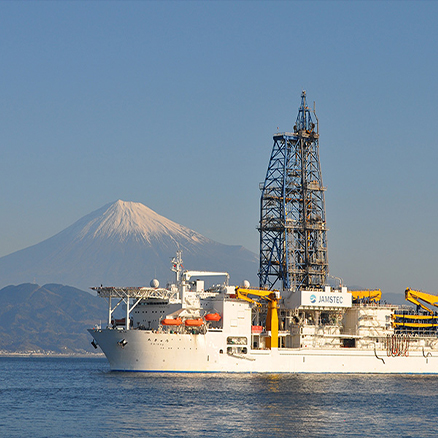
Who should apply
Opportunities exist for researchers (including graduate students) in all shipboard specialties, including but not limited to sedimentologists, petrologists, micropaleontologists, paleomagnetists, petrophysicists, borehole geophysicists, igneous geochemists, inorganic geochemists, organic geochemists, and microbiologists. We encourage applications from all qualified scientists.
Where to apply
China-affiliated scientists interested in participating in IODP expeditions can apply to sail through the IODP-China – (Expedition Application System). Non-China-affiliated scientists should apply through their appropriate IODP Program Member Offices.
How to apply
1 When a call for application is open, you can view more information related to the expedition online here: expedition information . Please, read the Call for Application carefully before sending your application package for any IODP expedition.
2 Please go to the IODP-China Expedition Application System to submit an online application to participate, including an application form, CVs, a post expedition research proposal, and those who have sailed on IODP Expeditions on behalf of IODP-China should also submit a post-cruise report.
3 Applications are reviewed by the IODP-China Scientific Committee. Nominations are then forwarded to the expedition's science operator (JRSO or ESO).
4 The operator then works with the expedition co-chiefs to assess the staffing nominations. Invitations to sail are ultimately issued by the operator, which informs all applicants of the outcome of their applications.
Financial support
The IODP-China sponsors participation in IODP expeditions by scientists (e.g., professors, research scientists, technologists, graduate students) who are affiliated with Chinese institutions (e.g., universities, government agencies, institutes). The IODP-China can provide financial support for science party members to participate in an IODP expedition.
If selected to participate in an IODP expedition, science party members may receive financial support including:
1 Up to 40,000 RMB for international travel to and from the drilling platform and to pre- and post-expedition meetings for planning, sampling, and coordination of research results.
2 20,000 RMB for post-expedition research ( A research proposal summarizing the post-cruise research plan should be submitted to the IODP-China Office).
The IODP-China also encourages the participants to apply for the National Natural Science Foundation of China.
IODP Operation Platform
 JOIDES Resolution
JOIDES Resolution
JOIDES Resolution, a riserless ocean drilling Vessel operated by JR Science Operator (JRSO), has been the most active IODP platform since it was equipped to be the main research platform for ODP in January 1985. The laboratory facilities and quarters were modernized during 2007-2008, and returned to active service in February 2009. The 143.4 meters long vessel with a displacement of 18,636 tons can house 65 crews and 60 scientists/technicians to work continuously for 75 days on ocean. The 9,000 meters long tonnage has the capability of drilling in 8,000 meters water depth. Since 1995, JOIDES Resolution has served 161 expeditions and recovered 322,616 meters cores.
 CHIKYU
CHIKYU
The Center for Deep Earth Exploration of the Japan Agency for Marine-Earth Science and Technology is responsible for the overall management of the riser drilling vessel Chikyu. The vessel was first launched in 2002, and started to serve as a drilling vessel from July 2005. The vessel is 210 meters in length and 56,752 tons in gross tonnage, and can reach destination that is 14,800 nautical miles away. The vessel is equipped with 10,000-meter-long drill string, which can drill in 2,500 meters water depth with riser drilling system and in 10,000 meters with riser-less drilling system. Such a long string was ambitiously designed to be a Mohole Drill to accomplish the scientific objective of the DSDP, to drill through the Earth's crust to reach the upper mantle.
 Mission-Specific Platform
Mission-Specific Platform
The European Consortium for Ocean Research Drilling (ECORD), representing scientific institutions in 15 nations (14 European countries and Canada), formed the ECORD Science Operator (ESO) organization to undertake Mission-Specific Platform (MSP) operations in areas not accessible by the two other drillships (e.g. shallow waters and ice-covered regions).
Q&A
Q: Who should apply?
A: Opportunities exist for researchers in all disciplines of Geoscience in Chinese universities and institutes.
Q: Can college/graduate students apply?
A: Yes.
Q: Do the applicants need to submit recommendation letter?
A: No.
Q: If I am invited to the expedition, will I be funded?
A: If invited to participate in an IODP expedition, China-affiliated science member parties may receive 40,000 RMB for international travel related to the expedition and 20,000 RMB for post-expedition research from IODP-China.
Q: How to access the rock core samples and data of DSDP, ODP and IODP?
A: Data from IODP expeditions can be accessed via the expedition's Science Operator:
Physical samples are archived at three repositories. Sample requests for all DSDP, ODP, and IODP cores are submitted using the Sample and Data Requests Database (SaDR) .
More information can be found here.